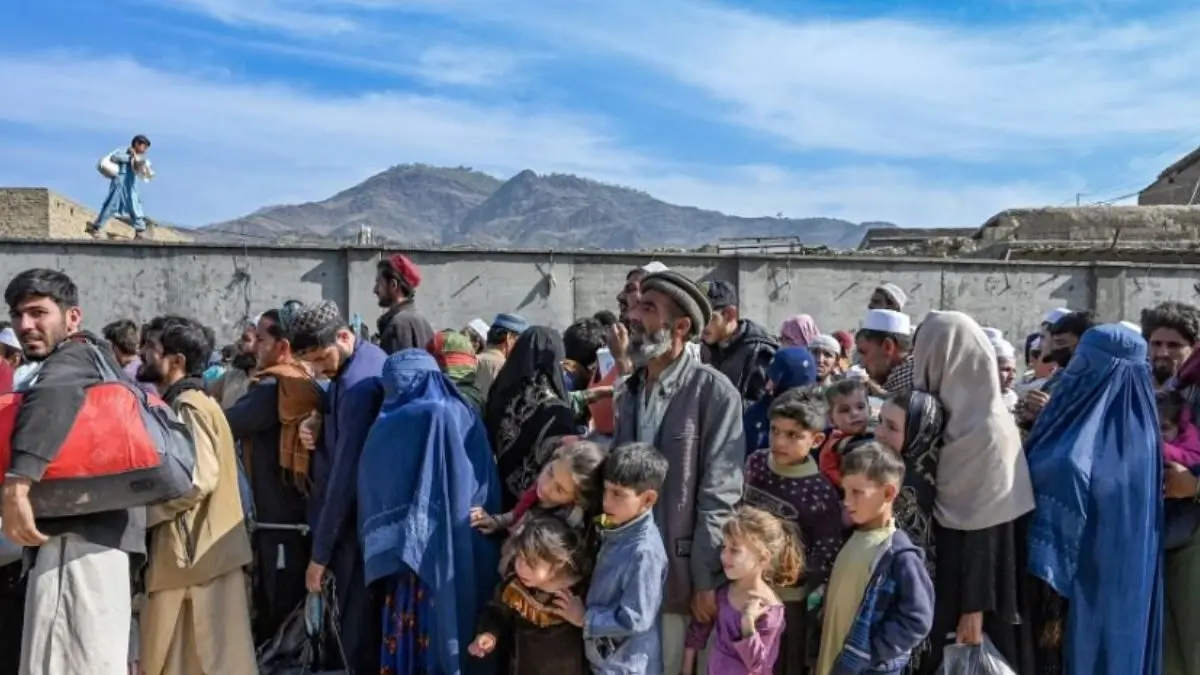In the past two months, 1,876 Afghan families have returned to the country through the Spin Boldak crossing.
Local officials in Kandahar say that Afghan migrants in Pakistan are still not treated appropriately.
Habibullah, the head of a temporary camp in the Takht-e-Pul district of Kandahar, said: “Afghans are still not treated well in Pakistan, and every day, many families return to the country. From the beginning of August to October 20, 1,876 families have returned from Pakistan, totaling 9,810 individuals.”
Meanwhile, some of these returnees have complained about the inappropriate behavior of Pakistani security forces.
Mohammad Essa, a 50-year-old resident of Baghlan province, recently returned to Afghanistan with his family through the Spin Boldak crossing after years of living in Pakistan.
He said that Afghan migrants in Pakistan face mistreatment and inhumane behavior, which forced him to return to his country with his family.
Mohammad Essa, a returnee, said: “The situation of Afghan migrants in Pakistan is very bad. People are imprisoned, and some have even disappeared. Overall, the condition of Afghan prisoners in Pakistan is extremely dire.”
Some other returnees who were imprisoned in Pakistan stated that after every security incident, Pakistani security forces arbitrarily detain Afghan migrants and confiscate their valuable belongings and money.
These returnees have called on officials to address their economic challenges and provide employment opportunities for them.
Abdulhadi, a returnee, said: “I was imprisoned for six days, and after that, they sent me back to Afghanistan.”
Khyal Mohammad, another returnee, said: “In Pakistan, I saw many Afghans struggling. Many of them were forced to sell their properties at half price.”
Abdul Sattar, another returnee, said: “I am very happy to have returned to my country, but I have nothing here. I ask the Islamic Emirate to provide me with work opportunities and also grant me land for shelter.”
Officials at the temporary camp in Takht-e-Pul district, Kandahar, added that in addition to providing food, medicine, and cash assistance, they have also facilitated these returnees’ transportation to their original regions.

